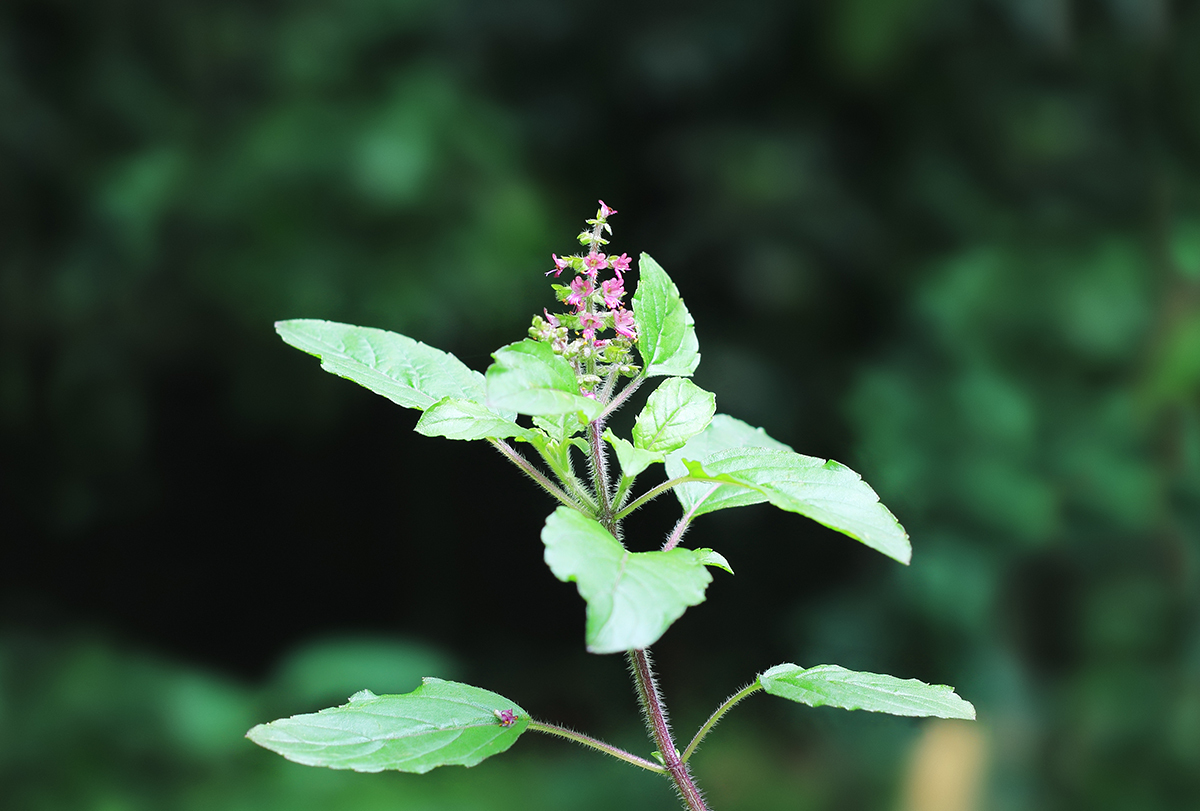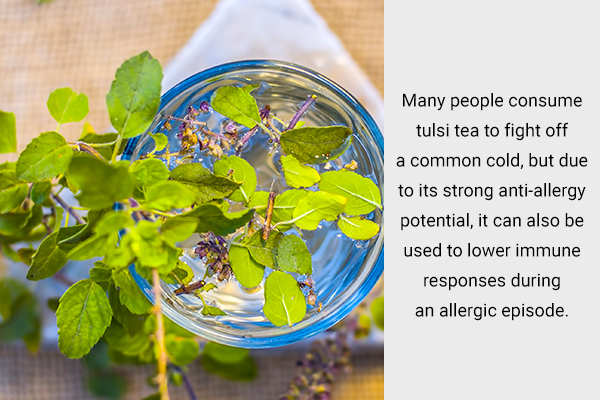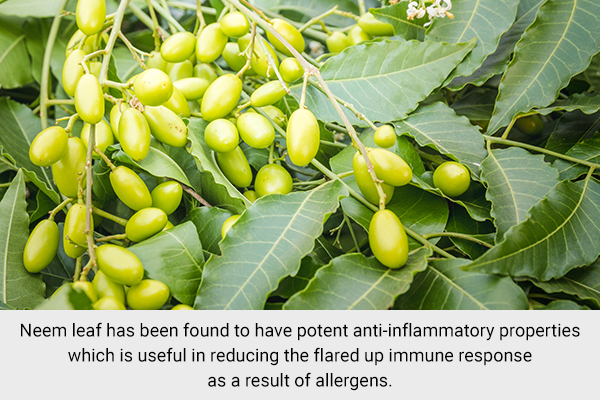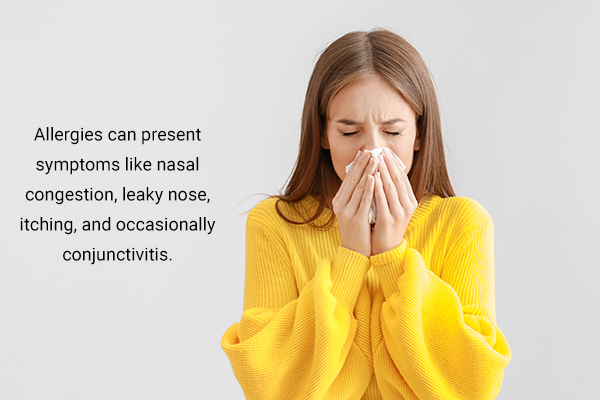In this article:
As the seasons change and the northern hemisphere heads into the season of spring, allergic responses will become increasingly common.

Common allergens such as dust, pollen, animal fur, certain fabrics used in furnishing, changes in humidity, smoke, and perfume can trigger symptoms of allergic rhinitis. (1)
Allergy symptoms can be extremely bothersome and can be rarely managed without medication. It can take over your life and cause a hindrance in daily activities.
Some of these symptoms include: (1)
- Nasal congestion
- Runny nose
- Itching in and around the nose
- Occasionally, redness in the eyes
Top Herbs to Deal With Allergies
Since allergies are a response of the immune system, the common treatment method used is anti-allergy medications, which suppress the exaggerated immune reaction.
However, recently, studies have evaluated the role of natural herbs in managing allergies. The need to rely on herbs results from the severe side effects of anti-allergy medications (such as drowsiness, constipation, and general weakness). (2)
This article will discuss the most widely studied Indian herbs for allergies.
Herbs That Can Improve Allergies
If you suffer from allergies, give these herbs a try as they are known to alleviate allergy symptoms.
1. Turmeric
Turmeric is nature’s most potent anti-inflammatory agent. (3) Its main bioactive compound called curcumin lends turmeric its health-benefiting properties.
In one study, curcumin was able to relieve sneezing, nasal congestion, and runny nose in patients with allergic rhinitis. It was effective in suppressing some immune activity and reducing inflammation-causing substances in the body. (4)
How to use turmeric:
- You can prepare turmeric milk by boiling 1 tsp of turmeric powder in a cup of milk or have it as tea.
- You can also add turmeric to your soups, curries, and salad dressings.
- Curcumin capsules are also available. Follow the dosage instructions on the bottle.
2. Tulsi

Tulsi is considered the “elixir of life” according to Ayurvedic principles. (5)
Many people consume tulsi tea to fight off a common cold, but due to its strong anti-allergy potential, it can also be used to lower immune responses during an allergy episode. (6)
How to use tulsi:
- Add 4–5 tulsi leaves in a cup of water and let it simmer.
- Strain the tea, and add honey.
- Consume this tea 2–3 times a day.
3. Aloe vera
Aloe vera gel, extracted from the leaf of the aloe plant, is considered a strong anti-allergen. It also has the potential to reduce inflammation, and studies have used aloe extracts to prepare nasal sprays to reduce nasal congestion and a runny nose. (7)
How to use aloe vera gel:
- Blend fresh aloe gel until it turns into a liquid. Combine a tablespoon of blended aloe gel with a few drops of lemon juice and honey to sweeten. Consume.
- Alternatively, you can purchase aloe vera-based nasal sprays and use them to manage allergy symptoms.
4. Neem

Neem leaves have been found to have potent anti-inflammatory properties that are useful in reducing the overactive immune response caused by allergens. (8)(9)
Moreover, one of neem’s flavonoids, called triterpene, has antihistamine effects, which can be used in the management of allergic rhinitis. (9)
How to use neem:
Neem leaves have a bitter taste, and neem tea might not be easy to consume. For this reason, you can purchase neem capsules and follow dosage instructions.
Caution: Pregnant women must avoid the consumption of neem in any form.
5. Long pepper
Long pepper, or pippali, belongs to a family of black pepper and has a similar spicy taste that is attributed to its capsaicin content. (10)
Few studies have identified the benefits of capsaicin (such as from long pepper) in the treatment of non-allergic rhinitis that presents the same symptoms as rhinitis, i.e., nasal congestion, runny nose, and itchiness. (11)
How to use pippali:
- Add ½ tsp of pippali powder to a cup of warm water. Add honey, and consume the drink.
- Alternatively, you can add the powder directly to honey to make a paste, and consume the mixture 2–3 times a day to improve symptoms.
Precautions to Consider
Herbal remedies are a way to manage allergies at home without the side effects of medication. However, these remedies take time to show their effect and may not work for everyone.
This article is meant to educate and does not encourage the use of herbs over medication.
When Should I See My Doctor for Allergies?
Your doctor can help you confirm your allergies. In addition, if your symptoms worsen after a day or two or you have trouble breathing, consult your doctor immediately.
Practical Takeaways

- Allergies can present allergy symptoms such as nasal congestion, runny nose, itching, and occasionally conjunctivitis.
- Since allergies are due to a heightened immune response, medications that suppress the immune response are often used. However, these cause symptoms of drowsiness, fatigue, and confusion.
- Herbal remedies that reduce inflammation are beneficial as they act in a similar way that anti-histamines do but do not produce the same side effects.
- Was this article helpful?
- YES, THANKS!NOT REALLY


